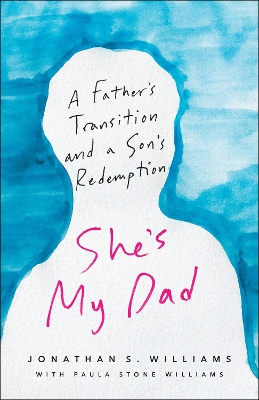Jonathan S. Williams was three months into pastoring a new, evangelical church plant when his father confessed a secret: he was transgender. His father, Paul, a prominent evangelical pastor, soon became Paula, and Jonathan's life and ministry went into a tailspin. Feeling betrayed by his mentor and confidante and scared that his church would lose funding and support if Paula's secret was exposed, Jonathan sunk into depression and alcoholism.
She's My Dad explores Jonathan's long and winding journey toward reconciliation, forgiveness, and acceptance of his father as well as his church's journey to become one of the few fully LGBTQ-inclusive,...
Read more
Jonathan S. Williams was three months into pastoring a new, evangelical church plant when his father confessed a secret: he was transgender. His father, Paul, a prominent evangelical pastor, soon became Paula, and Jonathan's life and ministry went into a tailspin. Feeling betrayed by his mentor and confidante and scared that his church would lose funding and support if Paula's secret was exposed, Jonathan sunk into depression and alcoholism.
She's My Dad explores Jonathan's long and winding journey toward reconciliation, forgiveness, and acceptance of his father as well as his church's journey to become one of the few fully LGBTQ-inclusive, evangelical churches in America. Jonathan and Paula offer insight and encouragement for those with transgender family members, empathizing with the feelings of loss and trauma and understanding that even being LGBTQ-affirming doesn't mean the transition of a family member will be easy. Jonathan writes of his family's continuing evolution, the meaning of remaining loyal to one's father even when she is no longer a man, the ongoing theological evolution surrounding transgender rights and advocacy in the church, and the unflinching self-scrutiny of a pastor who lost his God only to find God again in his father's transition.
